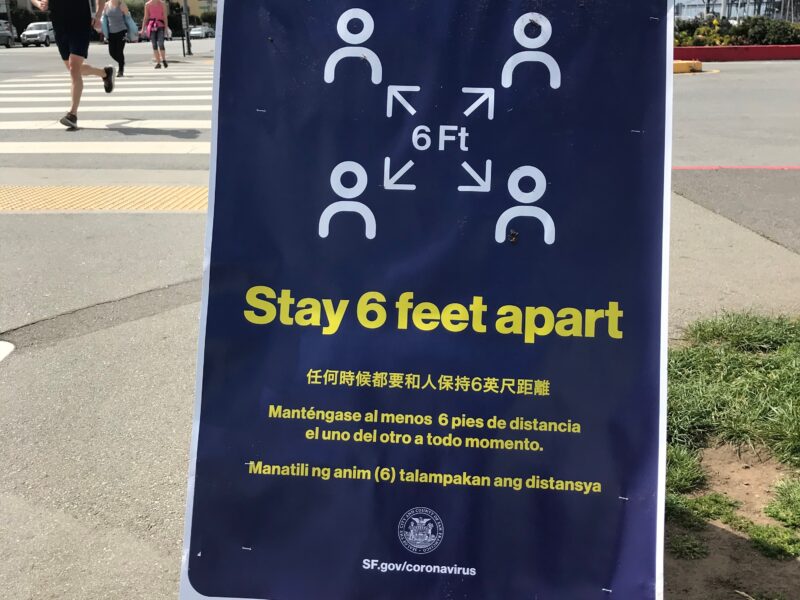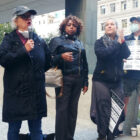Osbaldo Varilla-Aguilar and his housemates are members of a community that may have been hardest hit by COVID-19 in San Francisco: immigrants, especially those working unprotected essential jobs. While the devastating impacts on Latinx residents in the Mission District and Bayview are increasingly documented, the lingering, and sometimes extreme, symptoms of infection are much less understood.
HIV & AIDS
While SF Fought COVID, HIV Prevention Stalled
Over the past several months, health care providers have been warning San Francisco officials that while the city was focused on fighting COVID-19, rates of HIV infection and related illnesses were creeping in the wrong direction.
From the very beginning, and throughout the HIV epidemic, which began in 1981, San Francisco led the way in prevention, care and treatment that came to be recognized around the world.
California
‘A Serious Crisis’ — Experts Discuss Expiring Eviction Protections
If state lawmakers don’t act fast, tenants across California will become vulnerable to eviction next month for rent debts they accumulated during the pandemic.
Amid increasing calls for Gov. Gavin Newsom and the Legislature to avert an eviction wave, the San Francisco Public Press held a live panel discussion Wednesday about how the state got to this moment and what comes next. The Public Press spoke with Ora Prochovnick, director of litigation and policy at the Eviction Defense Collaborative, which provides free legal aid to people facing eviction, and Shanti Singh, communications and legislative director at Tenants Together, a statewide coalition of tenant-rights groups.
Homelessness
Grassroots Nonprofits and Homeless Communities Create Their Own Fire Prevention Solutions
Encampment fires are a fact of life due to the exposed conditions homeless residents live in, but the 77th Avenue Rangers’ camp demonstrates that there’s hope for controlling these incidents without official intervention.
One key to their success has been fire preparedness, including measures like installing smoke alarms and keeping fire extinguishers on hand.
Coronavirus
California’s Rent-Relief Program to Stop Taking Applications March 31
California will stop accepting applications for rent assistance from people facing COVID-19 hardships at the end of this month, the San Francisco mayor’s office said.
Local governments throughout the state will have to figure out how to help people still struggling to cover rent as the economy continues its climb back to pre-pandemic levels.
Coronavirus
California Evictions Could Soar in April, Tenant Groups Warn
California could see widespread evictions next month because of government delays in getting federal funds to renters, tenant groups warn.
Tenants throughout the state will still be waiting for rent assistance by April, when their pending applications will cease to protect them from eviction for those debts, the groups said in a report Tuesday.
Coronavirus
Case Rates Should Drive Risk Mitigation Behavior, Doctor Says
Dr. Kim Rhoads, who has been working on community-led responses to the pandemic, says what should drive decision making and risk mitigation is simply how much virus is in the community.
Coronavirus
Proposed Tenant-Organizing Protections Could Shift Balance of Power in SF
Renters throughout San Francisco could gain power to lessen COVID-19 financial hardships and improve conditions in their buildings with political-organizing tools that have a history of success in subsidized housing.
Coronavirus
Got Sued for Pandemic Rent Debt? Here’s What You Need to Know
Starting in November, many San Francisco tenants may have to defend themselves in small claims court if their landlords sue to obtain unpaid rent due since March 2020.
Coronavirus
Knock-Knock: Have You Been Vaccinated Against COVID-19?
In Bayview Hunters Point, most residents have already gotten their shots. One community organizer says part of the reason for that high vaccination rate is because of on-the-ground outreach work that local groups have been doing. That work continues and will for the foreseeable future.
Housing
Thousands in SF Saddled With Rent Debt but Ineligible for Government Help
Thousands of San Franciscans who borrowed money to pay rent during the pandemic are stuck with that debt, making them worse off than those who let the bills lapse.
Federal relief funds cover only unpaid housing expenses. That leaves tenants vulnerable if they made good-faith efforts to pay those costs by taking on thousands of dollars of debt to credit card companies, payday lenders, relatives or friends — especially if they later seek different housing.




















